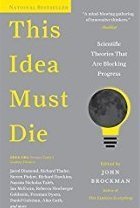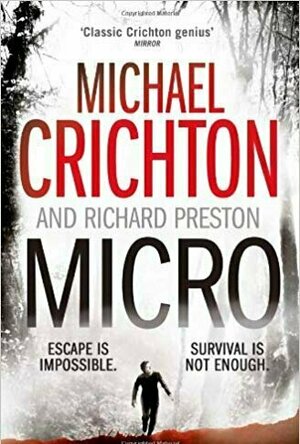Merissa (13782 KP) rated Endeavor (Voyagers #4) in Books
Aug 14, 2023
Anyway, back to this one...
Jared, Alex, and Aiden are all characters we have met in the previous books. Alex is Jarad's bodyguard, and Aiden is his lawyer. The sparks have been there for all to see but they haven't acted on for numerous reasons. But then they stay on Now, Voyager and the love spell works once again.
This was a hard read in places, dealing with stalkers, sexual assault, depression and PTSD, to name just a couple of topics. However, they are perfectly written, with no quick fixes, just understanding and compassion.
It was also hot as hell, and not just because they're in Thailand for part of it! They may have a multitude of reasons, but once they decide to go for it, phew! Hold onto your hats! Hot and steamy and so full of feelings.
Once I started this, I couldn't put it down. Absolutely fantastic and HIGHLY recommended by me.
Just... please tell me there's another book. Please?!
** same worded review will appear elsewhere **
* A copy of this book was provided to me with no requirements for a review. I voluntarily read this book; the comments here are my honest opinion. *
Merissa
Archaeolibrarian - I Dig Good Books!
Aug 14, 2023
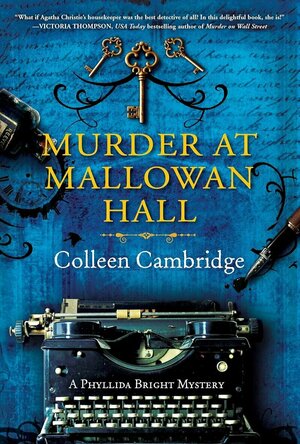
Murder at Mallowan Hall
Book
As head of household for none other than Agatha Christie, Phyllida Bright finds her position...
BookblogbyCari (345 KP) rated This Idea Must Die in Books
Aug 14, 2018
There’s nothing like reading a popular science book to make you feel more worldly wise! The Idea Must Die is a compilation of over 150 separate articles, by different contributors, arguing that certain scientific concepts are blocking progress and should be put to rest.
Its scope is very broad - at first I felt the book was concentrating on physics, but it later went on to include psychology, linguistics, genetics, criminology, economics and computer science. The title of each article comes from the concept that it is argued should be put to rest.
There were plenty of articles I found interesting and learnt from, including: - “Long-term memory is immutable”, "One genome per individual", “Economic growth”, "Intelligence as property", "Continuity of time", Knowing is half the battle" and "Information overload", “Essentialism”, "Malthuanism" (which is the idea that population will outstrip food supply).
For the majority of the articles I agreed that the theory should be put to rest, and plenty that I thought it was good to see included. These included topics such as: race, nurture vs nature, reductionism. Cancer research theories were also addressed.
There were several topics I was surprised to see argued against, such as evidence-based medicine, scientific method, evolution, carbon footprint, string theory, culture, science being self-correcting.
It was refreshing to see "We are stone age thinkers" but I was disappointed to see the title "Languages condition worldviews". It was also a shame to see AI there, along with robot companions. Ideas in some chapters were disconcerting, claiming there's no self, no cognitive agency, and no free will.
There was a potentially useful article entitled "Scientific knowledge structured as literature" suggesting how publication could move to a new updated method.
With each article ranging in length from a mere 1 to 7 pages, it is an incredibly easy book to dip in and out of, or to fit around a busy week. At times there is a flow between one chapter and the next, but not always. Several of the articles proffer conflicting viewpoints, prompting the reader to reflect and wonder.
Some articles are more-well written than others, and similarly some arguments are more strongly put forward. Usually only one argument is made per article, but at times there were several. I believe some of the articles were chosen for their brevity, which is a shame because some of the articles could use a stronger argument. Some articles are hard to get your head around. The language is not always accessible and often presumes reader already has some knowledge of the subject. Although intriguing to begin with, with so many articles it began to feel dry and laborious at about 60% through. Some articles I deliberately skipped, others I attempted but found impenetrable.
It’s a refreshing read if you haven’t picked a science book in some time and it’s definitely a thought-provoking read if you feel confident that you can get to grips with the material.
For more of my reviews, check out www.bookblogbycari.com
Night Reader Reviews (683 KP) rated Micro in Books
Jan 9, 2020
In Micro a group of young graduate students at a college or approached by the head of a company called Nanigen. The graduate students are invited out to the Nanigen lab in Hawaii to see for themselves the work being done there and to see if they want to work for the company. Out of curiosity all the approached graduate students agree to go but their trip to Hawaii becomes more than what they bargain for.
Nanigen is studying the micro world mainly looking for chemicals that micro animals are making that could be useful to humans in some way. Also like many scientific companies in the private sector Nanigen is doing top secret work for the government. Greed gets in the way for some of the scientist already working for the company and the trip becomes extremely dangerous and even deadly for the graduate students. Having to deal with micro-bots and new technology never heard of before the students must fight to survive a world very different from our own.
What I like most about the book was one of the same features that keeps me reading Michael Crichton's work. The author does his research very thoroughly. The book may be a work of science fiction but there is a bibliography in the back for the curious reader to be able to learn more about the fascinating topics brought up in the book. For being a work of fiction the animals, plants, chemicals, technology,and scientific concepts are not. What I liked least about the book was how similar to another one of his books it was and how predictable some parts felt to me. Again though, I am very familiar with Michael Crichton's work and that would probably explain why it felt so predictable. I cannot hold that against the book.
Overall I would rate this book a 4 out of 4 and would highly recommend it. It has a very strong story and is believable which is an important factor for science fiction. The target readers for this book would start around high school age if not older. I feel like high school students will get the basic concept of what book was talking about but they might be lost on some of the finer detail. It all just depends on if the book is being read for the story or if the reader is interested in science specifically microbiology and nanotechnology.
I feel like I need to note on here that Richard Preston finishing the book did not harm it in any way.

trainchinese: Dictionary & Flash cards
Education and Reference
App
Learn Chinese with an amazing dictionary (plus OCR) and flash card system. trainchinese will teach...
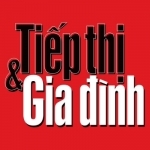
Tiếp thị & Gia đình Magazine
News and Magazines & Newspapers
App
Tin nóng: Ứng dụng iPad và iPhone của Tiếp Thị & Gia Đình, tuần san có số...

BBC Focus Magazine
News and Magazines & Newspapers
App
*** Specialist Magazine of the Year winner at the Digital Magazine Awards 2016 *** BBC Focus...
A User's Guide to Pyramid Analytics
Book
This book is a comprehensive look at the BI Office suite of tools from Pyramid Analytics. BI Office...
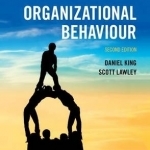
Organizational Behaviour
Book
Organizational behaviour affects all of us, every single day. But do your students struggle to see...
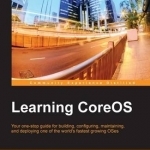
Learning CoreOS
Smiler S. Kingston and Shantanu Agrawal
Book
Your one-stop guide for building, configuring, maintaining, and deploying one of the world's fastest...

